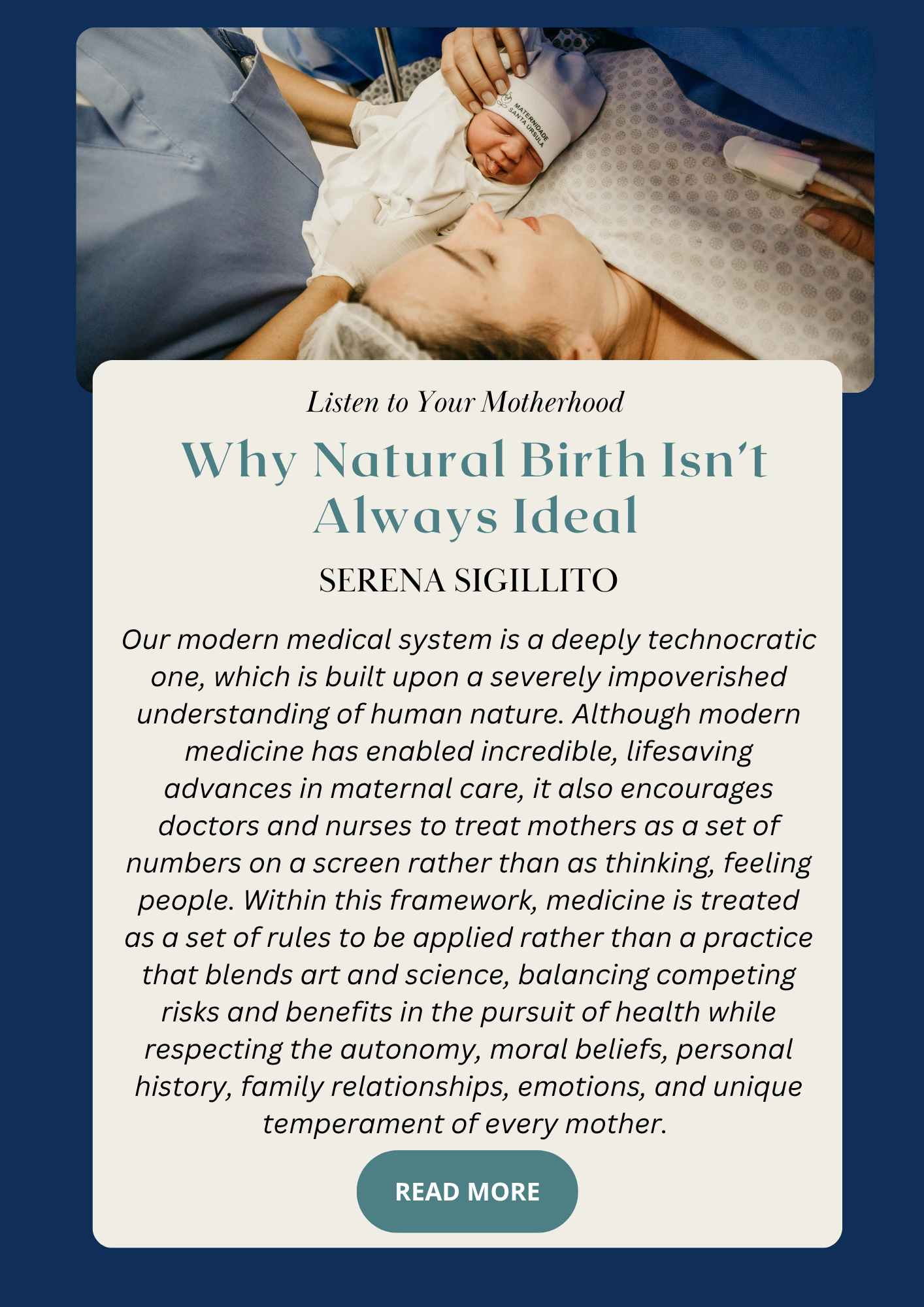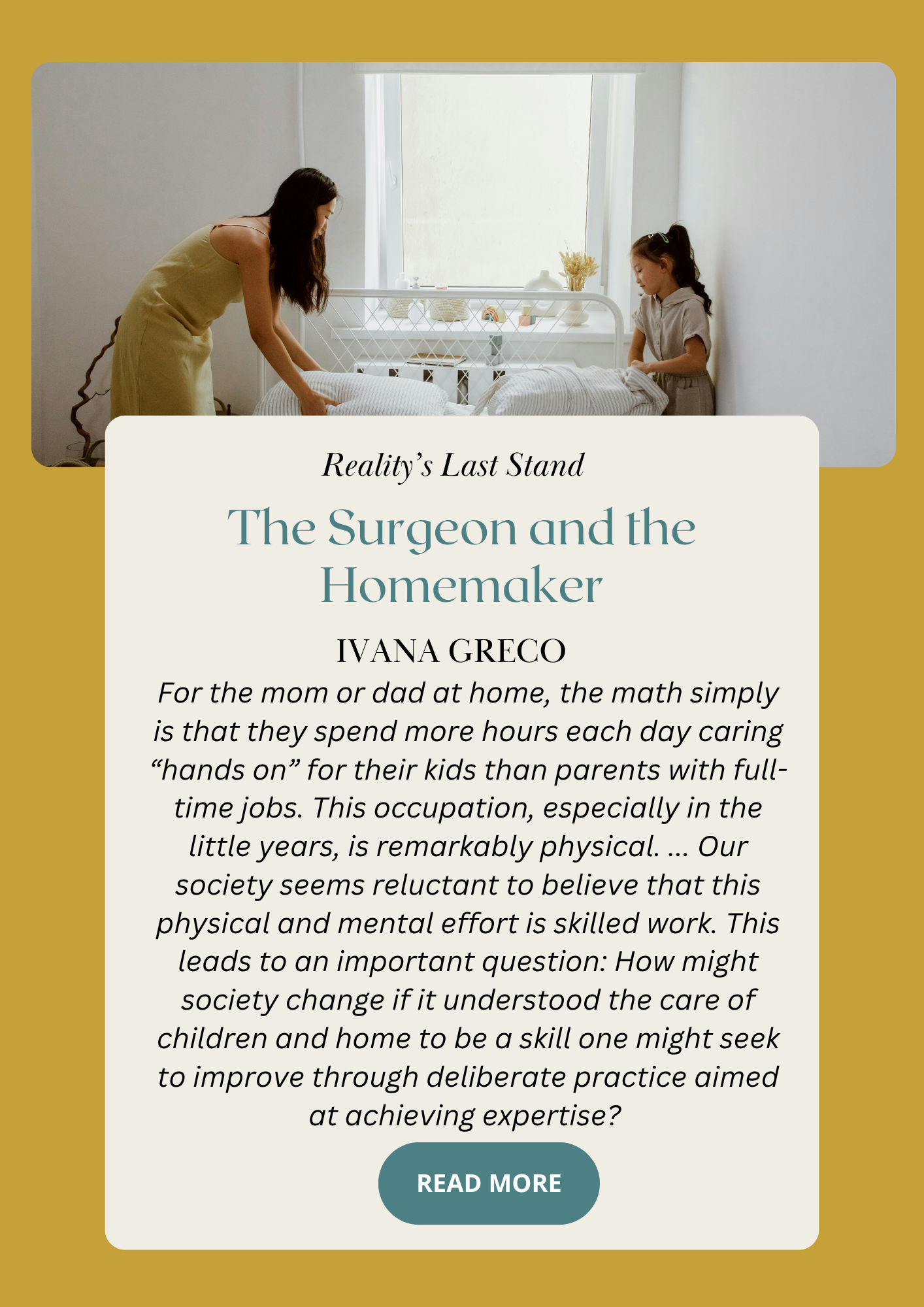Welcome to the weekly Fairer Disputations round-up: your one-stop shop for the best in sex-realist feminism. This week: Serena Sigillito on why natural birth isn’t always ideal, Hannah Barnes on why UK Secretary of State for Health and Social Care Wes Streeting changed his mind on cross-sex hormones for children, and Ivana Greco on homemaking as a skilled profession. Plus: the good side of girl power, the disturbing rise of neo-eugenics, my stepsister ran a surrogacy racketeering ring—and more!
First, Fairer Disputations editor Serena Sigillito writes about what it means to have an “ideal birth”—and why finding humanizing care is so difficult in today’s medical system.

Next, Hannah Barnes reports on the research that led UK Secretary of State for Health and Social Care Wes Streeting to change his mind about the use of cross-sex hormones in children.

Finally, Featured Author Ivana Greco asks: what might society change if we valued the work of the home as a skilled profession?

More Great Reads:
- Mary Harrington on Feminism, Motherhood, and the Myths of Progress, Solène Tadié and Mary Harrington, National Catholic Register
- My Stepsister Ran A Surrogacy Racketeering Ring — And Just Got Two Years In Prison, Katy Faust, The Federalist
- Bring Back Communal Kid Discipline, Stephanie Murray, The Atlantic
- The Good Side of Girl Power, Victoria Smith, The Critic
- The Disturbing Rise of Neo-Eugenics, Poppy Sowerby, UnHerd
Fairer Disputations Recommends:

Featured Author Holly Lawford-Smith has a new book out soon, published by Polity and available for pre-order now: Feminism Beyond Left and Right.
An unquestioned assumption of contemporary politics is that the left owns minority groups, in the sense that the left, exclusively, champions the interests of minorities and is for that reason owed the allegiance of minorities. This, in turn, gives rise to the sense of dissonance created by right-wing dissenters—the black social conservative, the gay ultra-nationalist, the female libertarian, the poor pro-capitalist. This same dissonance exists for women and feminism, creating a default assumption that a feminist is a left-wing woman. We don’t make a distinction between left-wing feminists and feminists; we don’t need to.
There’s nothing a philosopher loves more than an unquestioned assumption, and in this book political philosopher Holly Lawford-Smith systematically dismantles the assumption that feminism is an exclusively left-wing project. Once dismantled, the path is clear to a new set of questions. Who counts as a feminist in the first place? If women from anywhere on the political spectrum can be feminists, who is it that feminists should—or shouldn’t—be working with? And what can be said, more generally, about the ethics of alliances and coalitions?
In Feminism Beyond Left and Right Lawford-Smith makes the case for non-partisan feminism, feminism outside the constraints of the left-right political spectrum, a feminism for and about all women as women.



